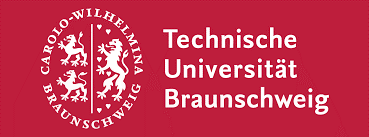
Technische Universität Braunschweig (TU Braunschweig, https://tu-braunschweig.de/) looks back on a 274 year history, founded as Collegium Carolinum, then with a focal point on mathematical-technical subjects alongside humanities and fine arts. Nowadays, TU Braunschweig has about 20,000 students, 3,700 university employees (of which 230 professors, and 1,930 scientists); an increasing number of students decide to study in Braunschweig, now having a share of 13% of all students. Throughout its history, TU Braunschweig has retained an emphasis on technical subjects, now organized in the exclusive association of the nine leading German Institutes of Technology (https://tu9.de/en/). The university currently has established four distinct core research areas, ‘Future City’, ‘Metrology’, ‘Mobility’, and ‘Infections and Therapeutics’. TU Braunschweig sees itself as an open-minded research university that attracts students and scientists from many nations. Our central location in Europe’s most research-intensive region makes us particularly attractive to international guests and shapes our university’s intercultural study and work environment. TU Braunschweig cooperates with universities mainly in the EU, USA, Canada, South America, China, Russia and Japan. The university ranks 13th in the funding stats of the German Science Foundation, attracting 0.34 Mio. Euro per professor and per year.
The Faculty of Architecture, Civil Engineering and Environmental Sciences has two departments (Architecture, Civil Engineering and Environmental Sciences), and four research centers in which about 4,000 students (B.Sc., M.Sc.) study one the the eight courses offered. Our architectural department ranks among the top 30 universities worldwide. The department Civil Engineering and Environmental Sciences offers the full breadth of the field, with an emphasis on integrated teaching and research bridging engineering and environmental science fields. The faculty mainly addresses the grand challenges and conducts research with a focal point on Future Cities, Civil Structures, Water Resources, Biodiversity, Mobility and Traffic.
The Leichweiß-Institute for Hydraulic Engineering and Water Resources (LWI) comprises four divisions of which the Division of Hydromechanics, Coastal and Ocean Engineering is participating in this research. The division focuses on water topics, ranging from hydrological aspects, water quality, groundwater flow, river, coastal and ocean engineering as well as basic aspects such as fluid dynamics. It also features a division in which waste and resource management complements the water-related subjects. Methodologically, LWI uses numerical and experimental methods to conduct research; a range of experimental facilities in a 5,600 m² laboratory space enables our research: wave and current flumes, a wave basin as well as the large wave flume, jointly operated with the university of Hannover.
The Faculty of Electrical Engineering, Information Technology and Physics consists of two departments with ten institutes in the fields of engineering and five institutes in the field of physics. The study courses in the field of electrical engineering and information technology have been repeatedly ranked among the national TOP 10 of their subject for years. On the research side, the department focuses on five key areas: Autonomous Systems, Digitization, Energy System Transformation, Metrology and Smart Material Design.
The elenia Institute for High Voltage Technology and Power Systems focuses on the technical and economic challenges of electrical power supply in the 21st century, both in research and education. Within the three main research areas smart grids, electromobility and components of power transmission, a variety of current issues is being addressed. The integration of renewable energies into the future power grid system, the charging behaviour of electric vehicles and the analysis of switchgear are examples of the wide scope of research at elenia.
Personnel involved in the project:
– Prof. Dr.-Ing. habil. Nils Goseberg
– Rubén Ansorena Ruiz, M.Sc.
Role in the Project
TU Braunschweig is involved in a number of work packages in the proposed project. Within these work packages, TU Braunschweig uses expertise from the electrical engineering and the civil engineering faculty. One role is site assessment and experimental testing of pumped storage implementations. The second role is assessing grid stability and effects.

